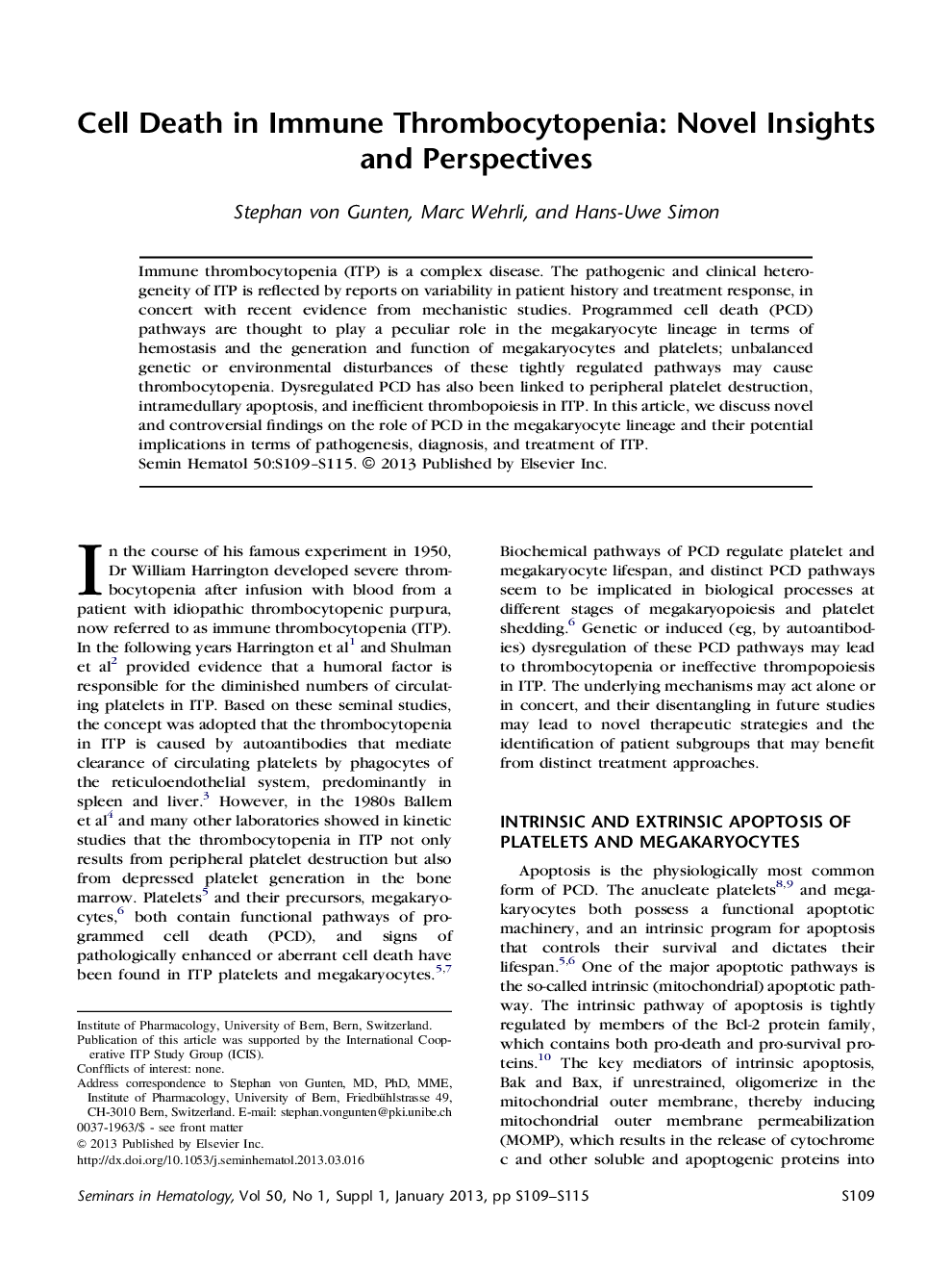| Article ID | Journal | Published Year | Pages | File Type |
|---|---|---|---|---|
| 6113831 | Seminars in Hematology | 2013 | 7 Pages |
Abstract
Immune thrombocytopenia (ITP) is a complex disease. The pathogenic and clinical heterogeneity of ITP is reflected by reports on variability in patient history and treatment response, in concert with recent evidence from mechanistic studies. Programmed cell death (PCD) pathways are thought to play a peculiar role in the megakaryocyte lineage in terms of hemostasis and the generation and function of megakaryocytes and platelets; unbalanced genetic or environmental disturbances of these tightly regulated pathways may cause thrombocytopenia. Dysregulated PCD has also been linked to peripheral platelet destruction, intramedullary apoptosis, and inefficient thrombopoiesis in ITP. In this article, we discuss novel and controversial findings on the role of PCD in the megakaryocyte lineage and their potential implications in terms of pathogenesis, diagnosis, and treatment of ITP.
Related Topics
Health Sciences
Medicine and Dentistry
Hematology
Authors
Stephan von Gunten, Marc Wehrli, Hans-Uwe Simon,
